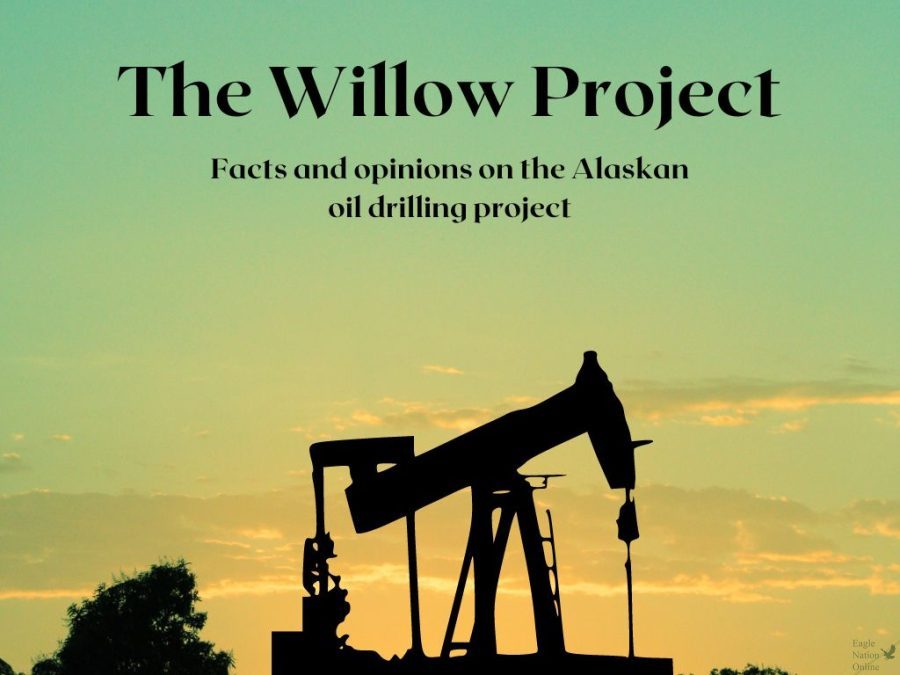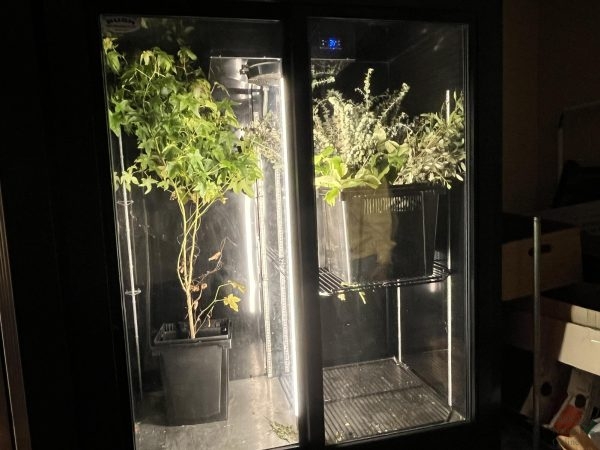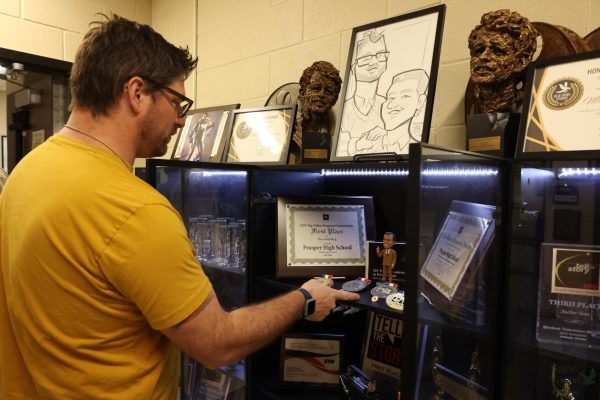Column: Willow Project to accelerate climate change, environmental degradation
Writer shares possible consequences of new proposal
Made in Canva, this graphic shows the silhouette of an oil pump. Oil pumps are a common sight atop oil deposits, which may soon happen at the Alaskan Slope. This drilling in Alaska is what companies call the “Willow Project,” which could damage one of the last remaining natural wildlife habitats.
The Willow Project, also called the Willow Oil Project, is a project in which oil will be pumped from Alaska’s North Slope in mass amounts. It is estimated that at its peak, the project could produce 180,000 barrels of oil a day. Alaskan locals and Americans see this as a huge economy and energy boost, which wouldn’t be an understatement considering the $8-17 billion projected to be produced by the project for the federal government, Alaska, the North Slope Borough, and the communities surrounding this area.
But the real result of this project isn’t America’s profit or prosperity, but rather the unfathomable costs in damages caused by the nearly 277 million tons of carbon dioxide estimated to be produced from this project over the duration of the next 30 years.
Carbon dioxide, a greenhouse gas, now makes up nearly 0.04% of the Earth’s atmosphere. At first, this doesn’t sound like a large number, but when you take into account that carbon dioxide cannot easily leave the atmosphere on its own, the build-up of this gas becomes more of an issue. Carbon dioxide is also a concern due to the amount of heat it traps in the Earth’s atmosphere via the sun. In abundance over time, this heat can cause the global temperature of Earth’s atmosphere to increase, therefore changing the climate itself. As a result of higher temperatures, arctic regions and glaciers are starting to melt at a rapid rate, increasing sea levels and causing coastal regions to recede underwater. As stated by NASA, sea levels are predicted to rise by 1-8 feet by 2100.
Other effects caused by global warming are abnormal weather and regional droughts. When the air in our atmosphere warms up, evaporation takes place at a faster rate than normal. This allows greater amounts of water particles to build up in numbers, therefore increasing the intensity or density of many rainstorms, hurricanes and blizzards. As for drought, because more particles than normal are absorbed from the earth, more water will be stored up in the atmosphere than is stored within the ground or on Earth’s surface. Serious droughts can cause many other natural disasters such as wildfires, dust storms, species extinction and plant extinction.
Not only will this project impact our planet, but the everyday life of its human inhabitants as well. Oil has an essential part in modern society, from fueling cars to heating homes. Nearly all electrically powered devices are sourced from oil. Heavy reliance on oil is hardly a good thing for society, considering oil is what scientists and environmentalists call a “fossil fuel.” This means that oil is formed from decomposing organic matter (animals or plants) compressed for millions of years. Our supply of oil is limited, and will inevitably run out due to the amount of time fossil fuels take to form, which would outlive centuries of the human population. As of this year, the rate of oil consumption in the US is over 100 million barrels per day. At the rate humanity is going, we only have enough oil left (including all reserves) for another 47 years.
Humanity, though heavily impacted, is not the only species this project poses a threat to. The project site, as decided by ConocoPhillips, is to be located southeast of the Teshekpuk Lake wetlands. This habitat is vital to Alaska’s ecosystem, home to thousands of unique and endangered species such as the yellow-billed loon, caribou, polar bears, and all of the world’s four species of eiders. Without these wetlands, the thousands of birds that flock to this area each year would have no place to molt or build their nests, significantly decreasing their numbers and forcing them to leave their natural habitat. And with the amount of heat flooding the earth, it’s likely these wetlands will eventually become too warm, and the species within these wetlands will be endangered and eventually go extinct.
These effects, global and humanitarian, all relate back to large oil extraction projects such as the Willow Project. We need to start speaking out and petitioning against oil drilling projects. Speak out to fund organizations that support clean energy such as solar, wind, hydropower, or geothermal energy production. Educate others on the process and effects of global warming. These are the ways we can take a stand not only for our environment but for the community of people around us.
Your donation will support the student journalists of Prosper High School. Your contribution will allow us to purchase equipment and cover our annual website hosting costs.















